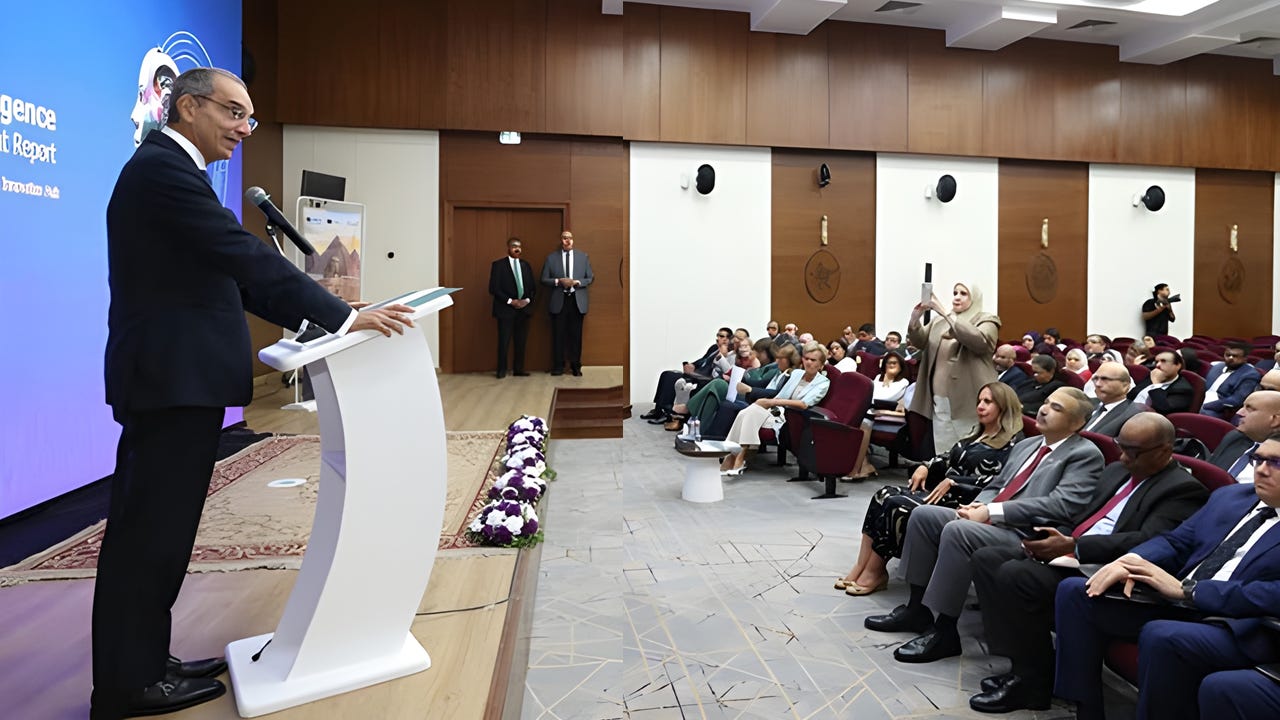Egypt, UNESCO launch 2025 AI readiness report
New AI readiness assessment report reflects national AI strategy progress
#Egypt #AIreadiness - Egypt’s Communications and Information Technology Minister Amr Talaat has launched Egypt's Artificial Intelligence Readiness Assessment Report at Creativa Innovation Hub in Giza, developed through collaboration between Egypt's Ministry of Communications and Information Technology and UNESCO's Regional Office for Egypt and Sudan, with European Union financial support. The comprehensive assessment serves as both diagnostic tool and joint action plan for responsible AI adoption, incorporating recommendations into Egypt's second National AI Strategy 2025-2030.
SO WHAT? - Although not yet public, the AI Readiness Assessment report offers an in-depth analysis of Egypt’s legal, policy, institutional and technical landscape. The report will help to map progress achieved under the National AI Strategy, identifying both gaps and opportunities to develop the country’s AI in a responsible, human-centred way. This assessment criteria are based on UNESCO’s Recommendation on the Ethics of AI.
Here are some key details about the announcement:
Egypt's Ministry of Communications and Information Technology has launched an Artificial Intelligence Readiness Assessment Report at Creativa Innovation Hub in Giza, developed in collaboration with UNESCO's Regional Office for Egypt and Sudan, with financial support from the European Union.
The assessment employs UNESCO's Readiness Assessment Methodology with active expert involvement, based on UNESCO's Recommendation on the Ethics of AI adopted unanimously by 193 Member States in 2021.
The report provides a comprehensive overview of Egypt’s AI landscape by assessing policies, institutions, legal frameworks, and stakeholder engagement mechanisms.
The report also highlights the achievements made under Egypt's National AI Strategy, while also identifying domains that require greater alignment between innovation and ethics.
The National AI Strategy implementation focuses on six pillars including governance with Open Data Policy adoption, data accessibility through Cloud First Policy, impactful sectoral applications, high-capacity computing resources, digital capacity building, and innovation awareness programmes.
The report highlights practical achievements including a speech-to-text solution with over 96% accuracy implemented in the justice sector and applications for early detection of widespread diseases.
The assessment enables Egypt to engage in multilateral dialogue with over 70 countries that the same methodology, enriching global cooperation and supporting national AI strategy implementation.
ZOOM OUT - Egypt launched its National Artificial Intelligence Strategy 2025-2030 in January 2025, marking the beginning of the second implementation phase of the country’s AI strategy. The ambitious 80-page strategy targets raising the ICT sector's contribution to GDP to 7.7% by 2030, creating 250+ AI startups, and developing 30,000 AI professionals through six strategic pillars covering governance, infrastructure, technology, data, ecosystem, and talent. Central to the vision is developing a national Arabic language foundation model to enable domain-specific applications across agriculture, healthcare, and law sectors. Similar initiatives to create sovereign AI models have already been undertaken by Qatar, Saudi Arabia, and the UAE.
[Written and edited with the assistance of AI]
LINKS
No download link available for this report yet. We’ll share a link once available.
Read more about Egypt AI initiatives:
Egyptian Tax Authoriy creates AI task force (Middle East AI News)
Huawei to train 25,000 Egyptian students in AI (Middle East AI News)
Egypt gets new deep tech venture studio (Middle East AI News)
Egypt opens AI university courses to tech school grads (Middle East AI News)
IBM to train 100,000 Egyptians in AI skills over 5 years (Middle East AI News)
Egypt & Microsoft to train 100,000 in AI (Middle East AI News)


